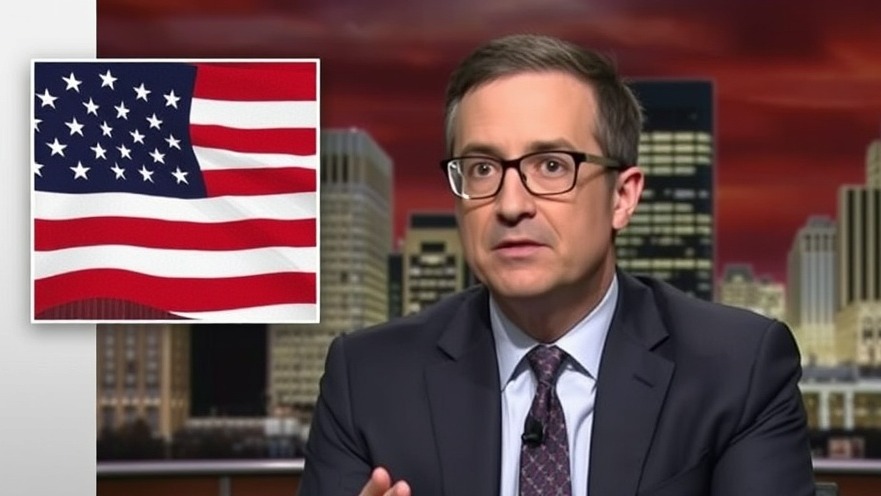
John Oliver Highlights the Contradictions of the ‘Make America Healthy Again’ Movement
In the latest episode of Last Week Tonight, John Oliver tackled the complexities surrounding the controversial 'Make America Healthy Again' movement, or MAHA. The movement has attracted a wide range of participants, from concerned parents to health advocates, each looking to address pressing issues like childhood obesity and dietary health. However, as Oliver points out, this diverse coalition harbors inherent contradictions that may do more harm than good for public health.
What is MAHA and Its Objectives?
At its core, MAHA is a “big tent” group that includes voices from various backgrounds and ideologies, not strictly limited to Republican ideals. Central to its mission is the call for improved dietary standards and the removal of harmful substances from children’s diets. While many of these objectives resonate with public health experts, the solutions proposed range from beneficial to dangerously misguided. As Oliver noted, with approximately a 15-20% increase in chronic health conditions among children from 2011 to 2023, attention to these health issues is necessary. However, just spotlighting the problems doesn't mean the solutions will be effective.
The Complexity of Healthy Eating Advocacy
Oliver highlights the dilemma of having trusted health experts aligning with figures like Robert F. Kennedy Jr., who operate within a movement that also promotes controversial viewpoints. The esteemed nutritionist Dr. Marion Nestle indicates that having any government official discuss timely health topics can be validating but is fraught with complications.
The Impact of Superficial Wins
One of the criticisms Oliver raises pertains to the movement’s tendency to celebrate narrow victories without addressing the larger issues at hand. For instance, the banning of artificial food dyes has been framed as a significant victory by MAHA. While there is literature to suggest that certain dyes can impact children’s neurobehavior, experts assert that such superficial changes won't drastically alter the broader health landscape of Americans. This points to a troubling pattern where the movement prioritizes grandstanding over substantive health reforms.
Future Implications for Public Health
As we move forward, Oliver warns that the implications of the MAHA movement are potentially detrimental. A focus on superficial solutions may distract from comprehensive policy changes that are genuinely needed within the public health sphere. The risk is great: when the conversation is dominated by controversial figures and narrow agendas, the underlying issues of food equity and accessibility may remain unaddressed.
What Can Be Done? Steps Toward Genuine Advocacy
To craft effective public health strategies, stakeholders must shift their emphasis from lobbyist-driven wins to evidence-based practices that comprehensively address health disparities. This includes engaging a wider base of public health experts, nutritionists, and community leaders to forge policies that target the root causes of health issues rather than merely addressing symptoms.
How to Get Involved in Meaningful Change
As engaged citizens, digital nomads, and individuals passionate about sustainable living, we can make a difference by advocating for science-driven policy discussions. Whether it’s partaking in local health initiatives, supporting transparent nutritional standards, or educating others about impactful dietary choices, every voice matters. Together, we can strive for a healthier future devoid of compromises on public health.
Ultimately, while movements like MAHA may shine a light on essential health topics, they must also evolve to support systemic changes that benefit everyone. By prioritizing broad public health initiatives over divisive rhetoric, we can collectively build a healthier America.
 Add Row
Add Row  Add
Add 




Write A Comment